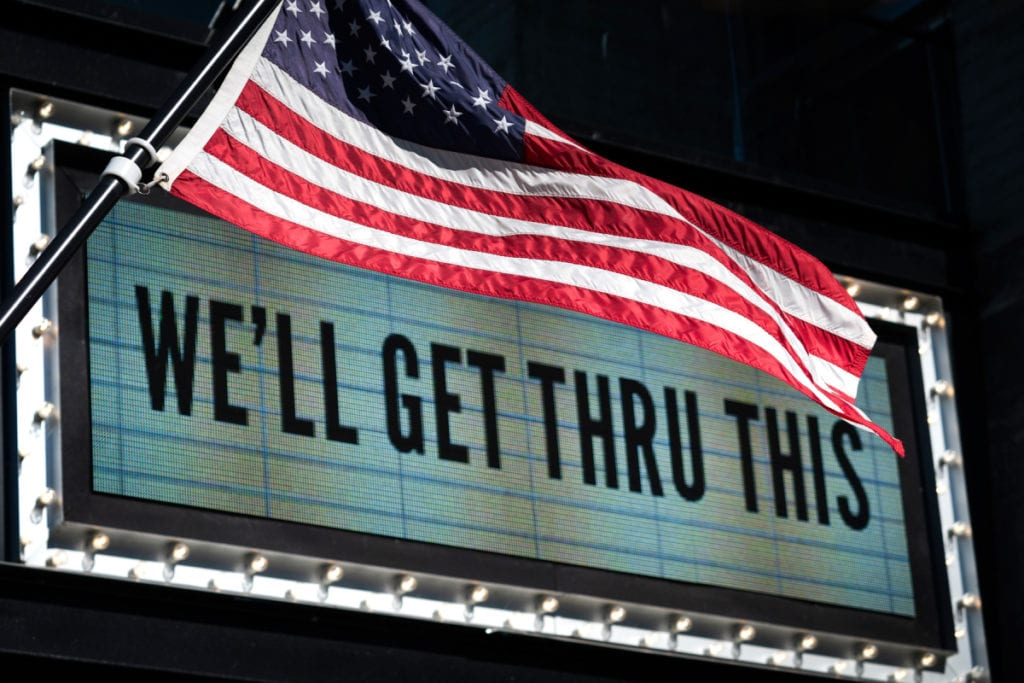by Jon Blistein, for Rolling Stone
“There’s been a lot of hard work that’s been put into this to make sure that everyone who the bill was really intended for will be able to get what they need,” says World Cafe Live COO and NIVA member Kerri Park
For Dayna Frank, owner of First Avenue in Minneapolis, Minnesota, the feeling was completely indescribable. For Kerri Park, general manager at World Cafe Live in Philadelphia, there was a palpable shift towards positivity. For Christine Karayan, owner of the Troubadour in Los Angeles, there was still some understandable hesitancy. It was Monday evening and Congressional leaders had only agreed on a Covid-19 relief package that included much-needed funding for independent music venues around the country, but no votes had actually been cast. “What these nine, ten months have taught me,” Karayan says with a laugh, “is don’t assume anything.”
When the votes came in a few hours later, the $900 billion stimulus package easily cleared both chambers. It was long overdue, desperately needed and, by many measures, not quite good enough considering the sizable problems many Americans still face in the Covid-19 era. But one bright spot was the $15 billion set aside for independent venues, Broadway theaters, movie theaters, talent agencies and museums. Though it benefits numerous cultural institutions that have been disproportionately impacted by the pandemic, its inclusion in the bill is due in large part to the efforts of those in the live music industry.
“I’m really proud that this could provide the vehicle to save so many industries,” Frank, who’s also board president of the National Independent Venue Association, tells Rolling Stone. “It’s not just live music and stages that need support; all of America is hurting. So if this can be the vehicle, that is a great source of pride. But I think as our champions have stated, it couldn’t come at the expense of those of us that are a week from going out of business.”
…
But being a unicorn bill came with some potential drawbacks. There were concerns that, as the bill gained in popularity and other industries were added to it, the venues it was designed to help wouldn’t get the money they needed. But Park, the general manager at World Cafe Live and a member of various NIVA committees, says based on the average needs of venues around the country, the $15 billion will be enough to help.
“There’s been a lot of hard work that’s been put into this to make sure that everyone who the bill was really intended for will be able to get what they need,” she says. “But again, as grateful as we are, this isn’t a payday; this is a lifeline. It’s a bridge to the next phase, because we are still a long way away from being able to re-open at capacities that provide us the sustainability we need.”
With the financial cushion Save Our Stages provides, venues can turn their attention to the difficult process of re-opening. Estimates on when that will be vary, though experts hope that scattered outdoor shows may be feasible by the summer,and something close to full touring will be possible by the end of 2021. But those hopes, as the Troubadour’s Karayan points out, come with all kinds of caveats, ranging from liability protections to questions over whether a mask-mandatory show means the bar can’t be fully operational. Most importantly though, venues can’t survive on scattered shows or gigs at limited capacity — real sustainability depends on that national network of touring artists safely returning in full, and that may not happen until 2022.
“It is still vital to make sure venues can pay off their debts for 2020 and have enough runway to make it to 2022,” Chopra says. “Let us survive until spring 2022, because anything less is going to be a half measure. If it is a half measure and we’re still in trouble, I’d hope that in six months we have an argument to go back and ask for more money if possible. But I personally think we have to keep the pressure on.”
If the Save Our Stages saga has proven anything, NIVA’s sheer existence will make overcoming those challenges possible. Though borne out of necessity, the group’s creation could mark a turning point for for an industry that had long been made up of interconnected, but disparate parts, that had no real reason to come together until the pandemic, but whose newfound solidarity isn’t just going to disappear once it’s over.
“This is a very rare, un-replicable moment where everyone had to stop, and as devastating as that’s been, it’s created a situation where we get to make everything about coming back better,” Park says. “And that’s not something that you would have otherwise seen. There are so many venues talking to each other across the country; so many people ready to share information and share in the idea of doing this better together. And that’s on all fronts — from reopening practices to creating a more equitable landscape within the industry, to sharing notes on hiring practices and booking strategies that really help you reflect the community that you’re in. There’s so much good work being done that will only be amplified by Save Our Stages passing and having that process get started where venues can breathe again.”


